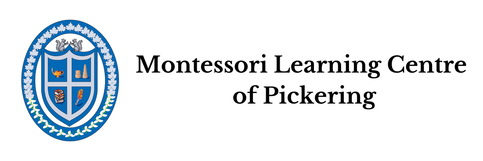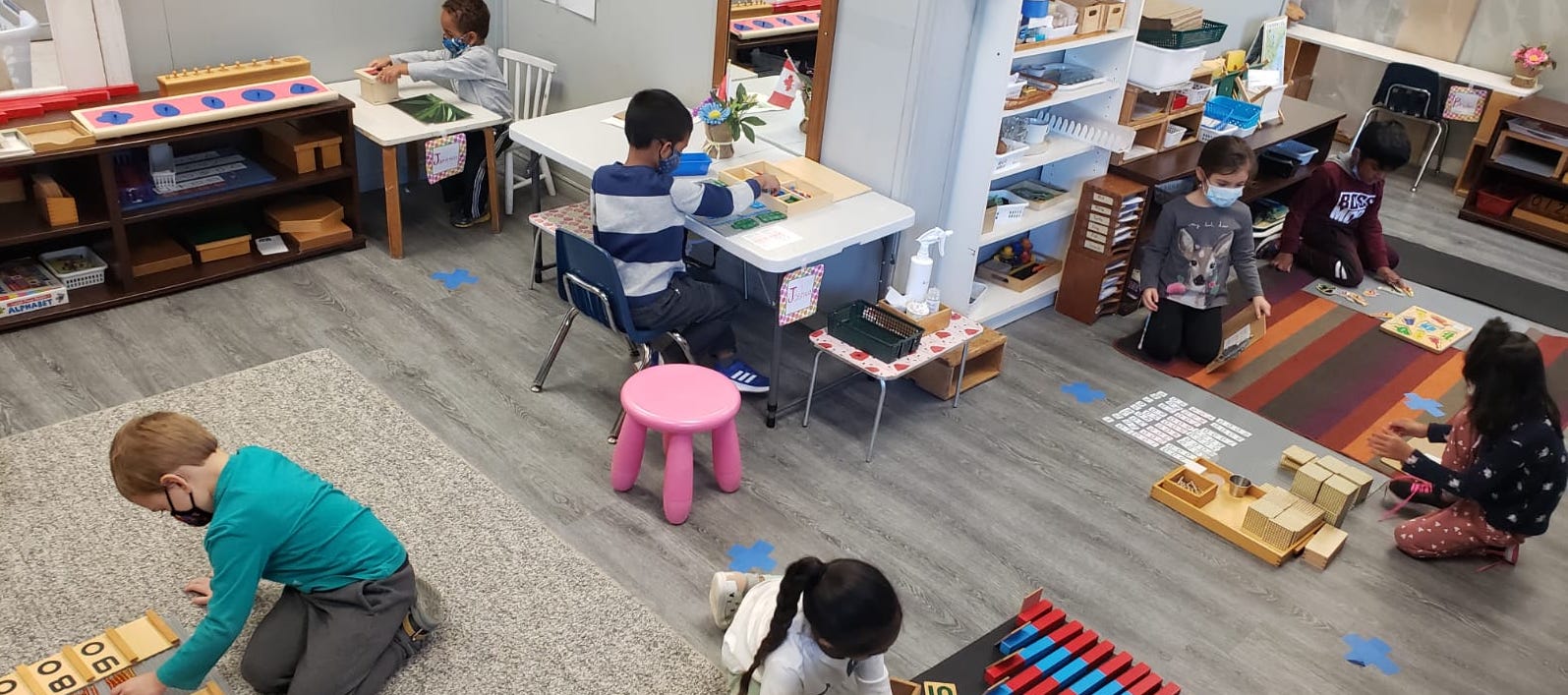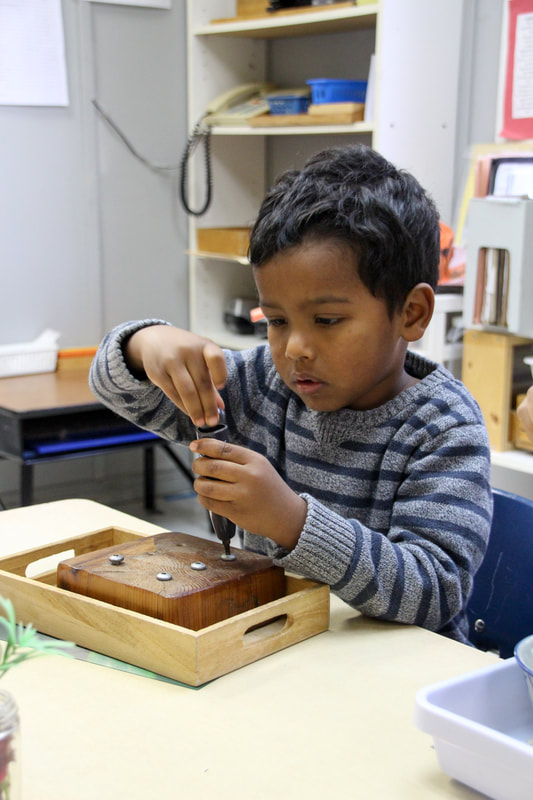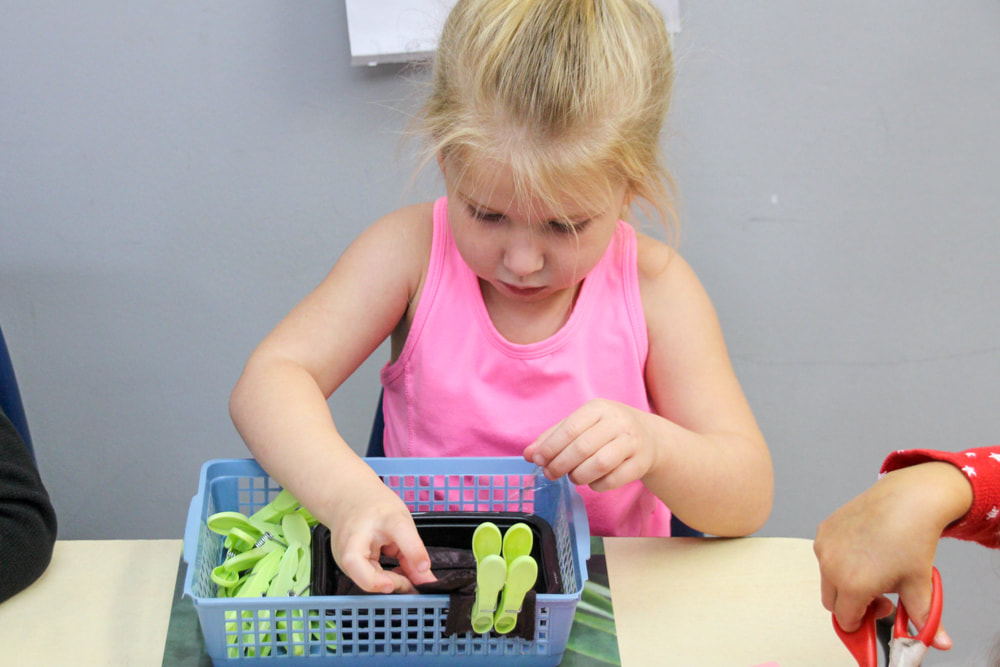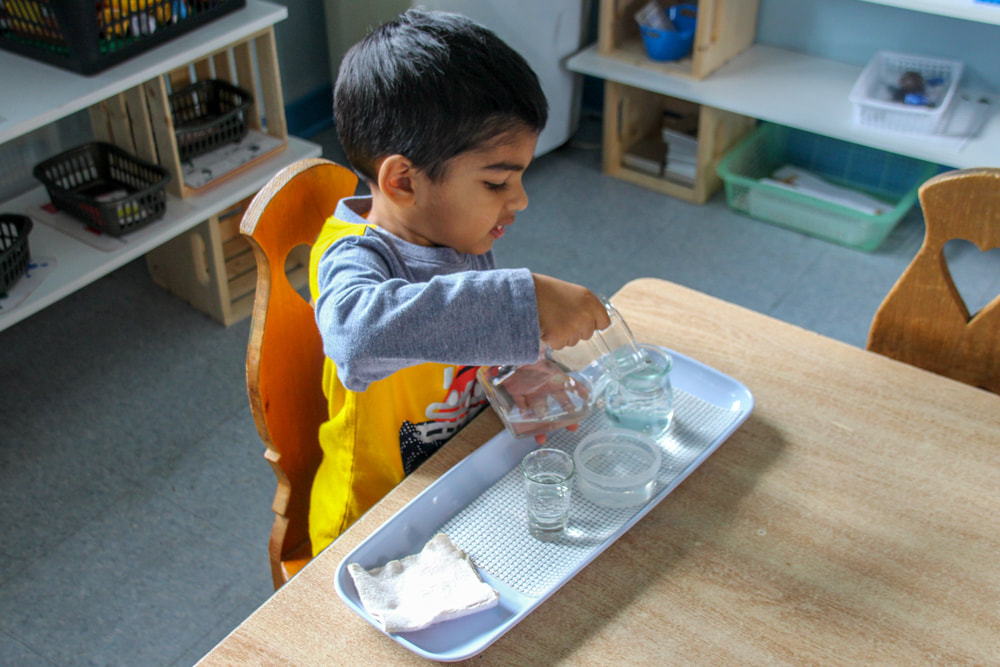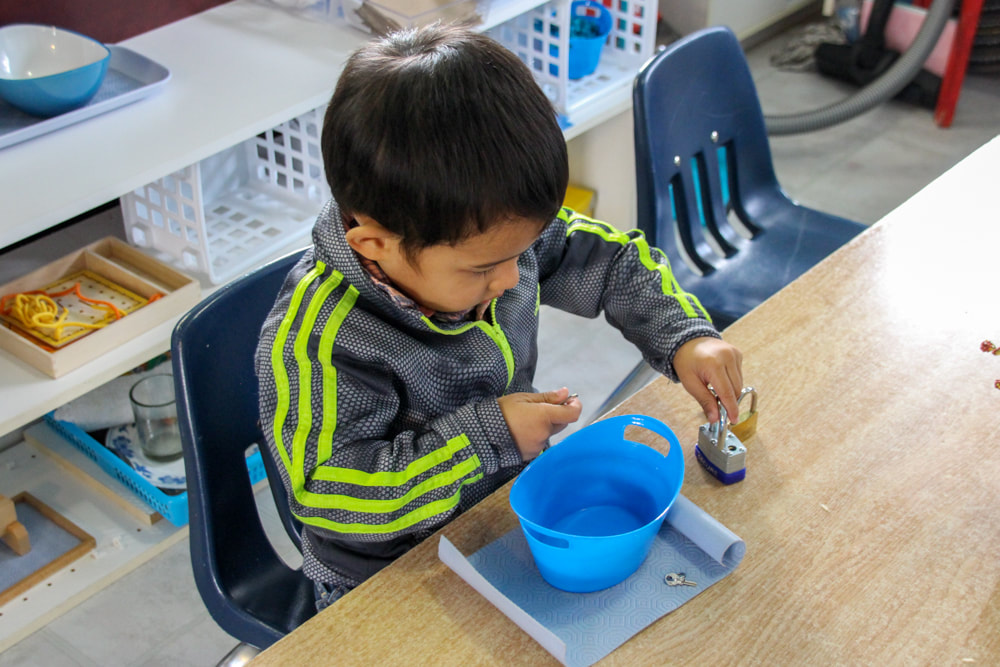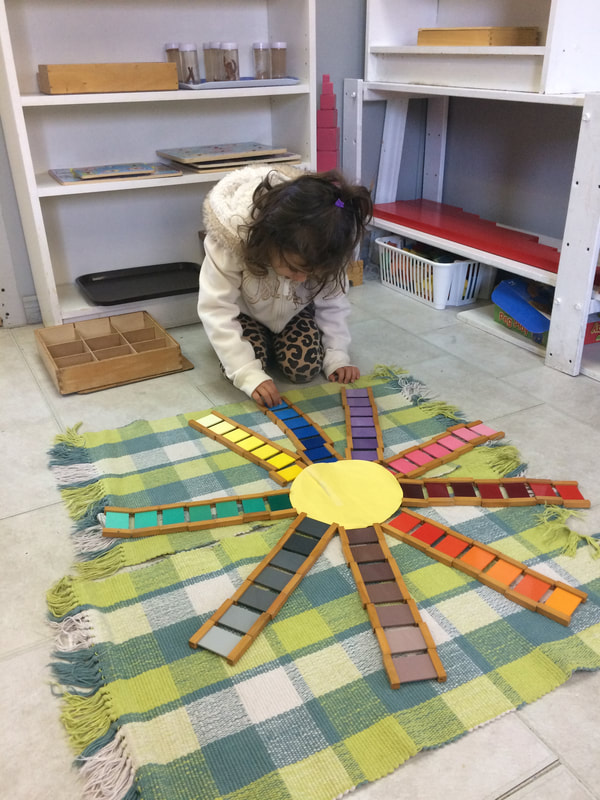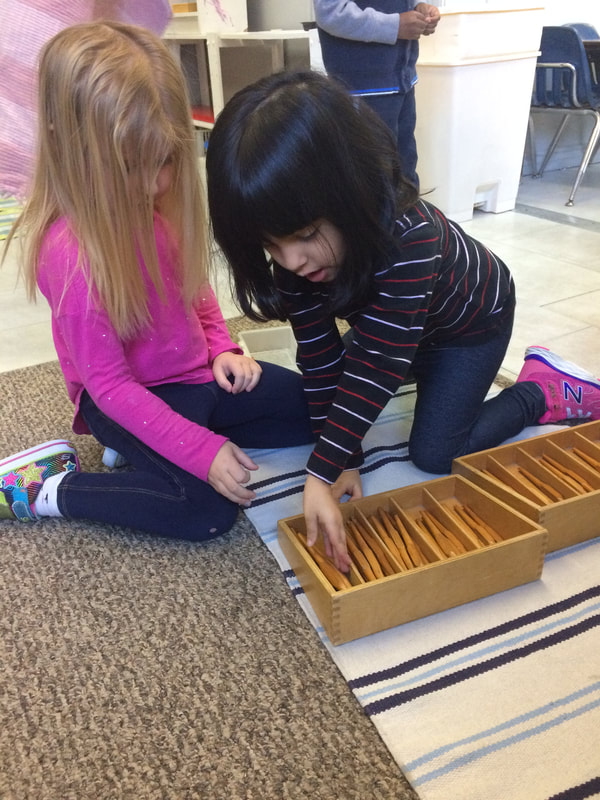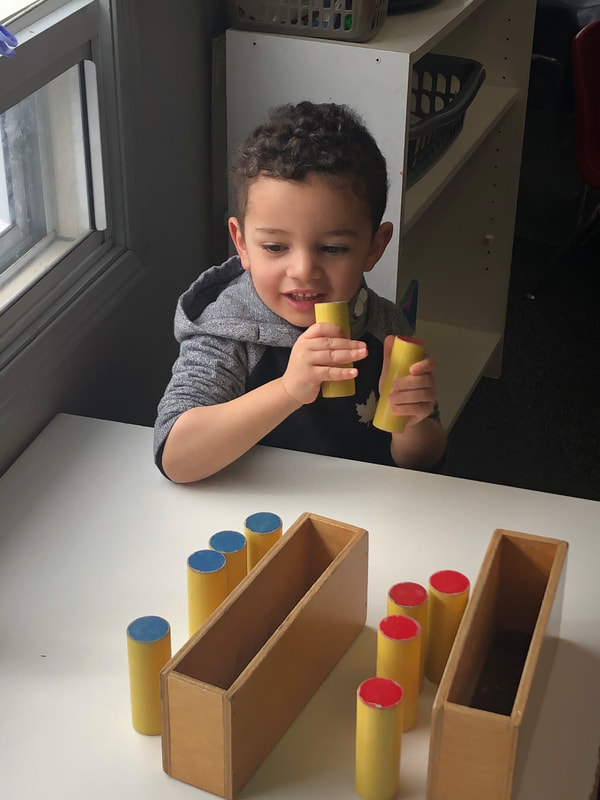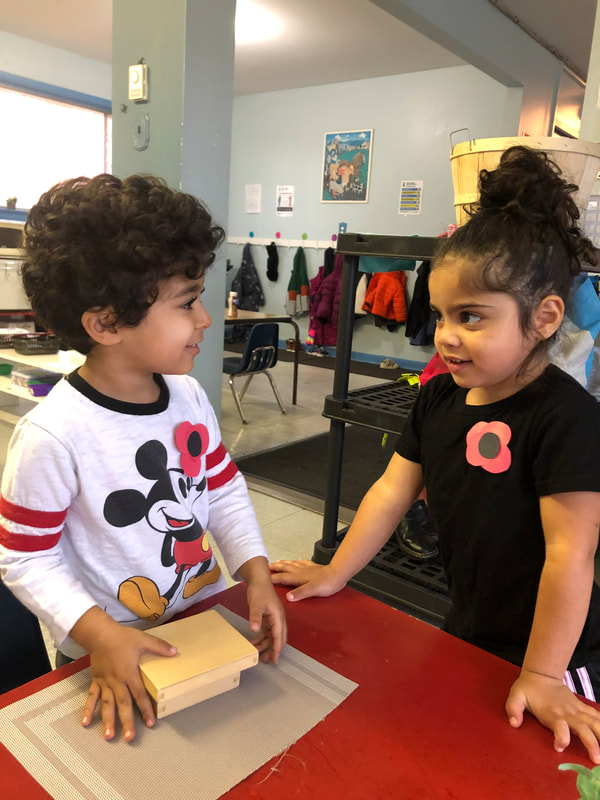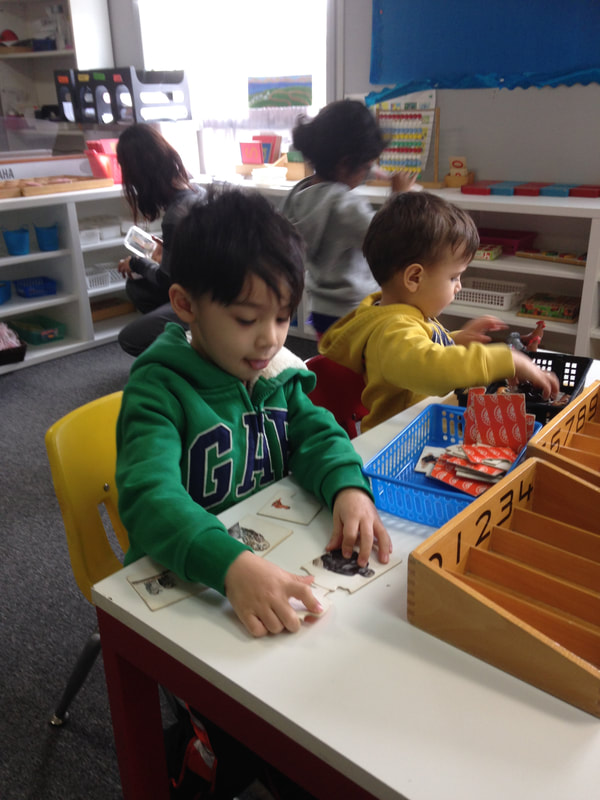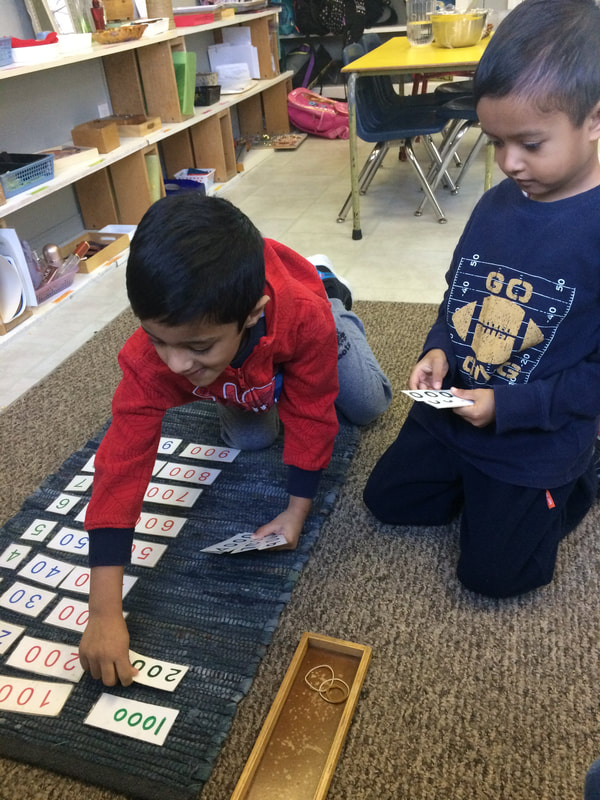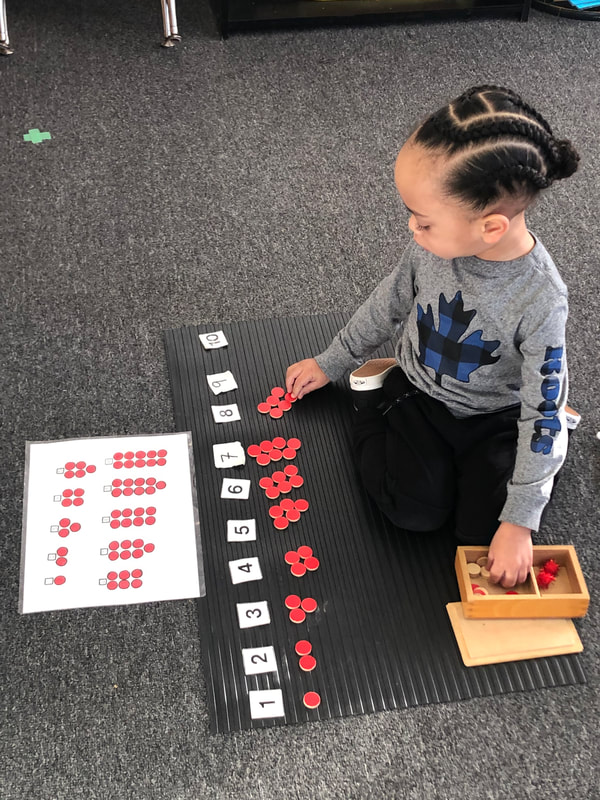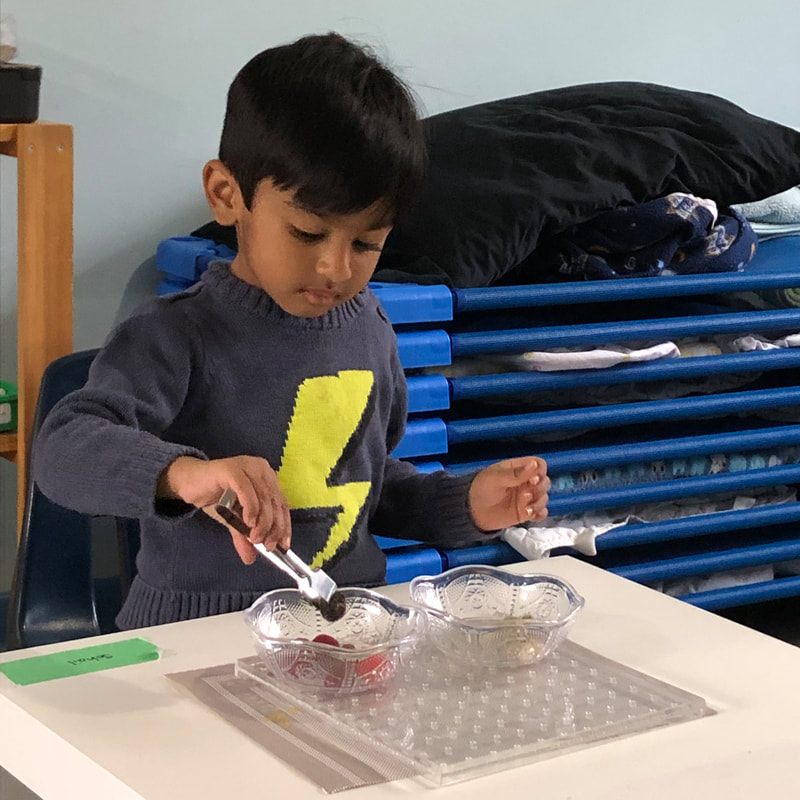Casa Program
Parents realize that at this age their child is in need of social interaction and enhanced stimulation beyond what the home setting can provide. MLCP acknowledges that finding the right extension of your home environment requires reassurance that your beliefs, values and consistent messaging will continue to be re-enforced with your child. Our school classrooms provide the right balance of nurturing, encouragement, academic instruction and play time. The teachers are in regular communication with you and provide regular feedback on academic progress, behaviours and social interactions. Your child continues to thrive as they prepare for Elementary level.
The Montessori Casa classroom (age 3 to 5 years) is a "living room" for children. Children choose their work from among the self-correcting materials displayed on open shelves, and they work in specific work areas. Over a period of time, the children develop into a "normalized community," working with high concentration and few interruptions. Normalization is the process whereby a child moves from being undisciplined to self-disciplined, from disordered to ordered, from distracted to focused, through work in the environment. The process occurs though repeated work with materials that captivate the child's attention. For some children this inner change may take place quite suddenly, leading to deep concentration. In the Casa classes, academic competency is a means to an end, and the manipulatives are viewed as "materials for development."
The Casa environment unifies the psycho-social, physical, and academic functioning of the child. It is an important task is to provide students with an early and general foundation that includes a positive attitude toward school. Inner security and a sense of order, pride in the physical environment, abiding curiosity, a habit of concentration, habits of initiative and persistence, the ability to make decisions, self-discipline, and a sense of responsibility to other members of the class, school, and community combine to show the ongoing development of a timely WHOLE person. This foundation will enable them to acquire more specialized knowledge and skills throughout their school career.
The prepared environment also offers practical occasions for introducing social relationships through free interaction. The logical, sequential nature of the environment provides orderly structures that guide discovery: Theorems are discovered, not presented; spelling rules are derived through recognition of patterns, not merely memorized. Every aspect of the curriculum involves creative invention and careful, thoughtful analysis.
At MLCP children entering the Casa classes first receive training in the basic Montessori principles. For example, using and replacing chosen work, care of materials and using quiet voices. After this orientation, they are shown Exercises of Practical Life, which are everyday tasks that sharpen skills in organization and the development of fine motor control, while developing the concentration span. The children become independent and develop work habits necessary for the next stage. The wide range of Sensorial Materials are introduced. All these materials are very inviting, involving the children in using their hands for learning. Each piece of this scientifically-designed equipment helps the children focus on some particular quality. The children are led to discover new and wonderful dimensions and acquire basic and essential information in an interesting and enjoyable manner. Working with these materials in the correct way lays the foundation for all further development. Culturally, the children may explore the introduction to, among others, Living/Non-Living, Plants and Animals, classification of Vertebrates, Dinosaurs, Seasons, Land and Water Forms, Puzzle Maps, Parts of the Tree, Flower, Leaf, etc...
In the Montessori Casa, five distinct areas constitute the prepared environment:
Students receive daily interactive French classes. Through specially created materials, music, stories and visual aids students advance in the spoken language and begin documentation.
Twice a week Physical Education classes - along with daily classroom exercises - ensure reinforcement of healthy lifestyle habits at a young age.
The Montessori Casa classroom (age 3 to 5 years) is a "living room" for children. Children choose their work from among the self-correcting materials displayed on open shelves, and they work in specific work areas. Over a period of time, the children develop into a "normalized community," working with high concentration and few interruptions. Normalization is the process whereby a child moves from being undisciplined to self-disciplined, from disordered to ordered, from distracted to focused, through work in the environment. The process occurs though repeated work with materials that captivate the child's attention. For some children this inner change may take place quite suddenly, leading to deep concentration. In the Casa classes, academic competency is a means to an end, and the manipulatives are viewed as "materials for development."
The Casa environment unifies the psycho-social, physical, and academic functioning of the child. It is an important task is to provide students with an early and general foundation that includes a positive attitude toward school. Inner security and a sense of order, pride in the physical environment, abiding curiosity, a habit of concentration, habits of initiative and persistence, the ability to make decisions, self-discipline, and a sense of responsibility to other members of the class, school, and community combine to show the ongoing development of a timely WHOLE person. This foundation will enable them to acquire more specialized knowledge and skills throughout their school career.
The prepared environment also offers practical occasions for introducing social relationships through free interaction. The logical, sequential nature of the environment provides orderly structures that guide discovery: Theorems are discovered, not presented; spelling rules are derived through recognition of patterns, not merely memorized. Every aspect of the curriculum involves creative invention and careful, thoughtful analysis.
At MLCP children entering the Casa classes first receive training in the basic Montessori principles. For example, using and replacing chosen work, care of materials and using quiet voices. After this orientation, they are shown Exercises of Practical Life, which are everyday tasks that sharpen skills in organization and the development of fine motor control, while developing the concentration span. The children become independent and develop work habits necessary for the next stage. The wide range of Sensorial Materials are introduced. All these materials are very inviting, involving the children in using their hands for learning. Each piece of this scientifically-designed equipment helps the children focus on some particular quality. The children are led to discover new and wonderful dimensions and acquire basic and essential information in an interesting and enjoyable manner. Working with these materials in the correct way lays the foundation for all further development. Culturally, the children may explore the introduction to, among others, Living/Non-Living, Plants and Animals, classification of Vertebrates, Dinosaurs, Seasons, Land and Water Forms, Puzzle Maps, Parts of the Tree, Flower, Leaf, etc...
In the Montessori Casa, five distinct areas constitute the prepared environment:
- Practical life enhances the development of task organization and cognitive order through care of self, care of the environment, exercises of grace and courtesy, and coordination of physical movement (spooning, pouring, hammering, lacing etc.).
- The sensorial area enables the child to order, classify, and describe sensory impressions in relation to length, width, temperature, mass, colour, pitch, etc. (pink tower, brown stair, knobbed and knobless cylinders).
- Mathematics makes use of manipulative materials to enable the child to internalize concepts of number, symbol, sequence, operations, and memorization of basic facts (number rods, "teen" boards, bank game). Numerals are introduced through raised sandpaper numbers satisfying the sensorial development so important at this age.
- Language arts include oral language development, written expression, reading, the study of grammar, creative dramatics, and children's literature. Basic skills in writing and reading are developed through the use of sandpaper letters, alphabet cut-outs, and various presentations allowing children to link sounds and letter symbols effortlessly and to eventually express their thoughts through writing.
- Cultural activities expose the child to basics in geography, history, and life sciences. Music, art, and movement education are part of the integrated cultural curriculum.
Students receive daily interactive French classes. Through specially created materials, music, stories and visual aids students advance in the spoken language and begin documentation.
Twice a week Physical Education classes - along with daily classroom exercises - ensure reinforcement of healthy lifestyle habits at a young age.
Testimonials
"I feel my kids have been given an excellent start to their education." ~ Barb Jenne
"Our son loves being at MLCP and I couldn't wish for a better place for him to start his academic career." ~ Kristina
"We wholly endorse the Montessori Learning Centre of Pickering, as the best choice available to us to educate our children." ~ M. Martin
"Our son loves being at MLCP and I couldn't wish for a better place for him to start his academic career." ~ Kristina
"We wholly endorse the Montessori Learning Centre of Pickering, as the best choice available to us to educate our children." ~ M. Martin
